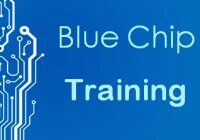 Overview
Overview
This instructor-led, live training is designed for anyone interested in learning Java for the purpose of test automation. It is a streamlined, intensive course with plenty of hands-on exercises to get participants ramped up quickly with the essential programming skills needed to apply to software automation testing. The focus is on the Java fundamentals which can be directly and immediately applied to test automation.
This course does not cover in depth test automation frameworks such as Selenium. It also bypasses the conventional “Hello World” approach to learning Java, as this is not a course on application development. This course is squarely aimed at getting participants up and running quickly with test automation. If you are already versed in Java and wish to get straight into testing with Selenium, please check out: Introduction to Selenium (https://www.nobleprog.com/introduction-selenium-training).
Format of the course
- Interactive lecture and discussion.
- Lots of exercises and practice.
- Hands-on implementation in a live-lab environment.
Course Customization Options
- To request a customized training for this course, please contact us to arrange.
Requirements
- An interest in learning Java programming for the purpose of test automation.
Audience
- Beginner testers who wish to learn Java for automation testing
- Professional testers with experience in other programming language such as Javascript and C# who wish to transfer their skills to Java
Course Outline
Introduction
Installation and Setup
Java Programming – Getting Started
Overview of JUnit
Writing Your First Unit Test
Understanding JUnit Assertions
JUnit Annotations (@Test)
Java Methods as @Test Methods
Using and Creating Java Classes
Importing Packages
Java Data Types and Operators
Implementing Conditions and Loops in Your Test Script
Understanding Java Arrays
Other Ways to Iterate through Your Code
Catching and Throwing Exceptions
Understanding Java Inheritance
Handling Exceptions
Manipulating Strings
Working with Numbers
Working with Dates and Times
Java Property Files
Reading and Writing Files
Logging
Using Abstract Classes
Using Regular Expressions
Closing Remarks
